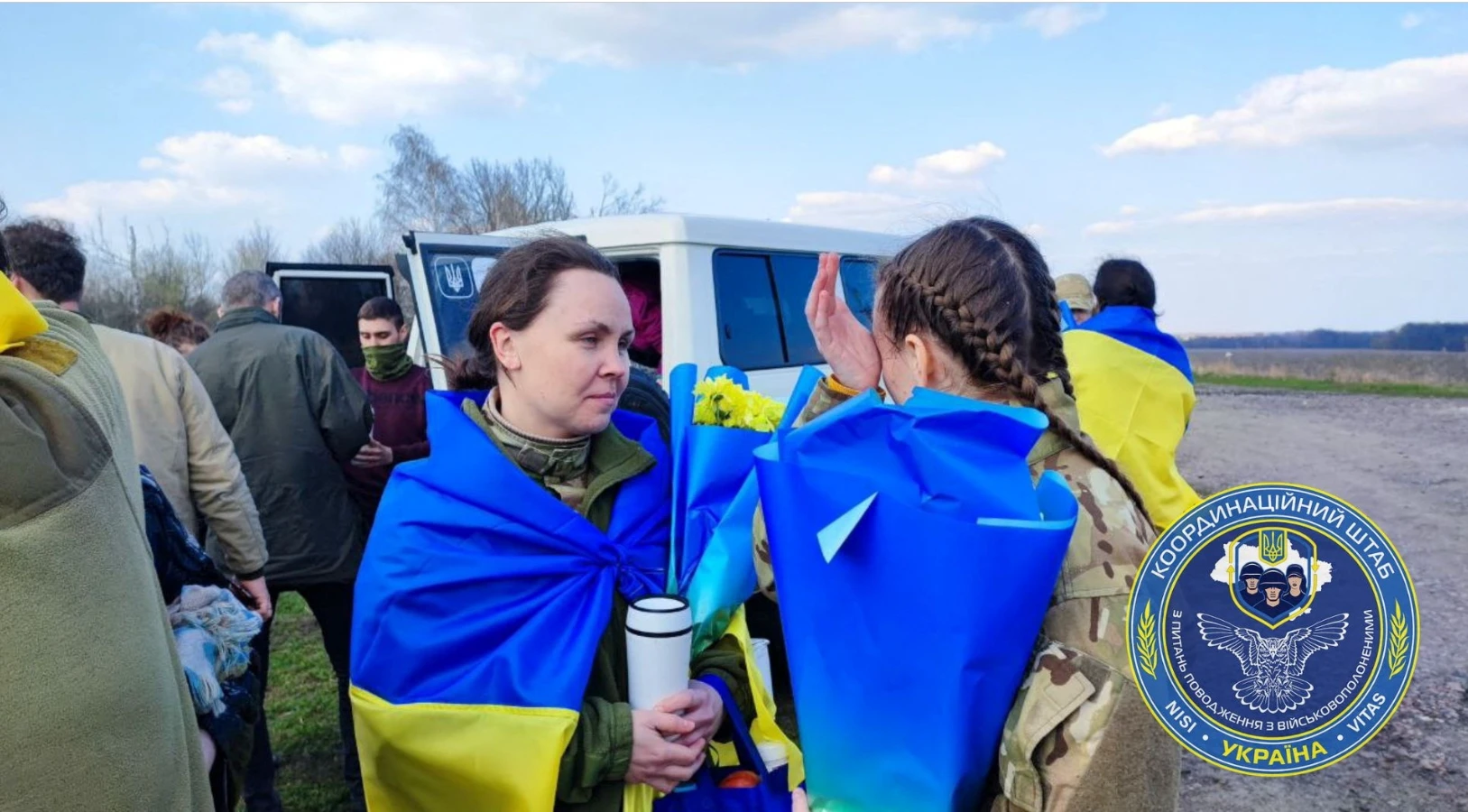Ukrainian medic’s tearful reunion marks end of over two years in Russian captivity

Stay tuned with 24 News HD Android App

Tetyana Bugay burst into tears as she called her sister to announce she had finally returned to Ukraine after spending over two and a half years in Russian captivity.
The 29-year-old medic from Ukraine's Azov brigade was captured around the siege of Mariupol, a southern Ukrainian city which Russian troops surrounded and razed to the ground.
The siege lasted from February until May 2022 and ended in the surrender of over 2,000 fighters including Bugay.
"Kitten, I called you to let you know that I'm here. I'm fine, you waited it out," she cried.
"I'm begging you, please don't cry, because that will make me very nervous... We will be together soon, I love you very much. Tell everyone I'm home, okay?"
AFP attended the rare exchange at an undisclosed location near the Belarusian border and spoke to some of the 49 Ukrainians -- including 23 women -- freed on Friday.
Azov fighters who, like Bugay, defended the Azovstal steelworks in Mariupol, featured in the exchange for the first time in over a year.
Russia tends to withhold these Azov prisoners as the history of the brigade, and its role in the siege of Mariupol, turned the fighters into a bargaining chip for Moscow.
'Back from hell'
"I can't believe it! I waited every day and I prayed and finally this day has come," said Tamara Miroshnikova.
"I wish for all our people to come back from this hell and that no one else will ever hear the word 'war prisoner' ever again," said the 28-year-old, who said she served as the commander of an armed vehicle with Azov before she was captured.
She lined up with the other released Ukrainians who held up banners and, between tears and laughter, sang Ukraine's anthem.
The whole group then promptly got on a bus to a hospital in northern Ukraine to receive initial checkups.
"I talked to my mom and my kids... I waited two and a half years for this day. I did not know how they were, where they were. Today is the happiest day of my life," Miroshnikova said, boarding.
She wrapped herself in a Ukrainian flag and sat next to Bugay, who she had bonded with during the battle for the Azovstal steelworks.
Soldiers entrenched in the steelworks had held on for weeks, long after hope seemed lost -– and became a symbol of Ukrainian resistance.
Bugay and Miroshnikova had not had any contact since their capture, and saw each other for the first time a few days ago, on a train bringing them out of Russia.
Propaganda 'demonises' Azov
They were now giggling, hugging each other and waving to people as the bus passed through Ukrainian villages.
"Our own people are welcoming us back!" Bugay said.
She was ecstatic and did not want to dwell on her captivity.
She acknowledged she had despaired at times.
"But I was telling myself: 'Come on, just a bit more' and just like that, little by little, every day, every holiday, every month, I kept some hope," she said.
Prospects of release are usually thin for Azov prisoners, whose propaganda value complicates any exchange.
The Kremlin has for years lambasted Azov with accusations of "neo-Nazism" that the brigade strongly denies –- and Moscow prosecutes Azov soldiers in regular show trials.
"It is clear that Russian propaganda demonises certain units more, spends more effort to slander them, to make various fakes, and this definitely affects the exchange process," said Andriy Yusov, a representative for the Ukrainian government body coordinating exchanges.
'No air' in captivity
Yusov told AFP that the return of all soldiers was a priority for Ukraine and that officials were already working on the next exchange.
During her captivity, prison authorities told Bugay over and over that no one needed or waited for her back home.
So she tried to shield herself.
She created a poem that she learned by heart, dedicated to her sister.
"My dear sister, forgive me for the time when I was a prisoner of war," she began, quietly reciting the long poem on the bus.
"There is no air for us in captivity, we are all dying in a foreign land. My homeland, I do not want to forget the holy land, my sister, father or my mother. Ukraine, please hear me, only you can save us."
